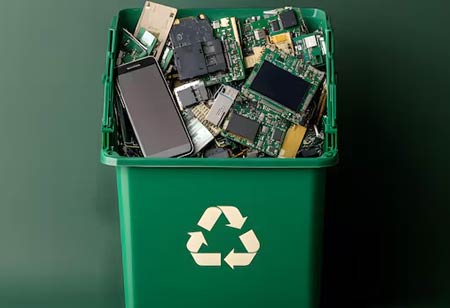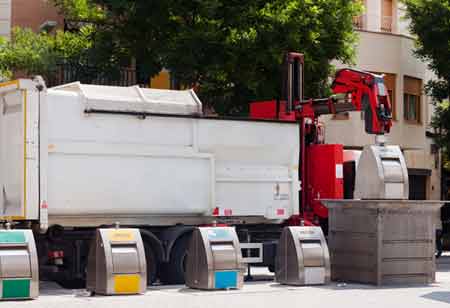Thank you for Subscribing to Environmental Business Review Weekly Brief
E-Waste Recycling and the Trade-Offs Between Environmental and Economic Impact
E-waste recycling frequently faces challenges such as environmental contamination, inefficiency, high costs, and insufficient infrastructure, which can result in unsafe handling practices.

By
Environmental Business Review | Monday, November 03, 2025
Stay ahead of the industry with exclusive feature stories on the top companies, expert insights and the latest news delivered straight to your inbox. Subscribe today.
Fremont, CA: E-waste recycling offers a critical opportunity to address the mounting problem of discarded electronics. Yet, this promising solution comes with challenges that can lead to environmental harm, economic inefficiencies, and unsafe practices. Recognizing these risks is essential for developing more sustainable and effective recycling methods.
Environmental Contamination Risks
One of the primary concerns surrounding e-waste recycling is the risk of environmental contamination. While the recycling process can recover valuable materials such as copper, gold, silver, and rare earth metals, it can also potentially release harmful toxins. This issue is especially pronounced in developing nations, where e-waste is often processed in informal sectors lacking regulatory oversight.
Toxic substances such as mercury, lead, and cadmium can be released into the environment during improper dismantling, polluting air, soil, and water. The hazards do not stop at environmental pollution; they also pose severe health risks to workers and surrounding communities. Prolonged exposure to these toxic chemicals can lead to numerous health problems, including neurological disorders, respiratory issues, and even cancer. Thus, while recycling aims to reduce waste, improper processes may exacerbate environmental and health challenges.
Inefficiencies in Recovery
The inherent complexity of electronic devices is another hurdle to efficiently recycling e-waste. Electronics are composed of a diverse mix of materials that can be difficult to separate and process. Consequently, only a fraction of valuable materials are successfully recovered. For example, precious metals like gold, copper, and aluminum are often found in such small quantities that specialized, costly methods are required for their extraction.
Most recycling efforts focus primarily on larger and more visible components, such as metals and plastics, overlooking smaller, yet valuable materials. This inefficiency leads to significant waste, as large volumes of e-waste end up in landfills or are incinerated instead of properly recycled. The challenge of recovering materials hampers resource regeneration and contributes to ongoing environmental degradation.
Economic Viability Concerns
The financial aspect of e-waste recycling presents further challenges. The processes involved in collecting, transporting, and safely disposing of electronic waste demand specialized equipment and expertise, escalating costs. The labor-intensive nature of recovering valuable metals and components compounds this issue, making the recycling process economically burdensome. In many cases, the costs involved may exceed the value of the materials recovered, creating a significant economic imbalance.
This problem is exacerbated when global raw material prices fluctuate, making it difficult for recycling operations to maintain financial sustainability. Additionally, insufficient infrastructure for e-waste recycling in many regions complicates efforts, especially in developing countries with weak or non-existent regulatory frameworks.
While e-waste recycling holds great potential for environmental recovery, it is imperative to address the environmental, operational, and economic challenges associated with it. Building a safer and more efficient recycling framework is essential for tapping into the benefits of e-waste recycling.





